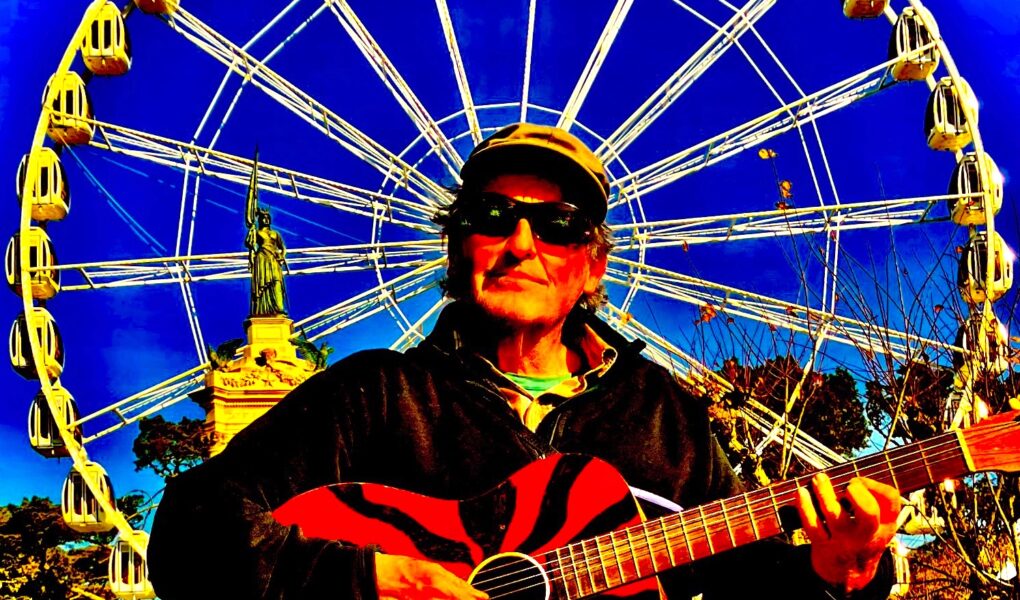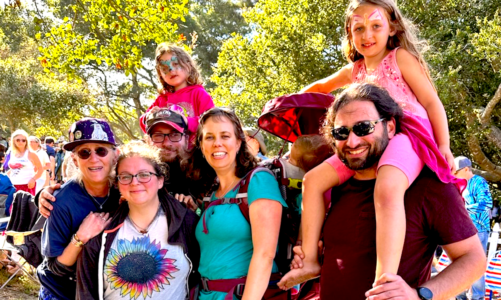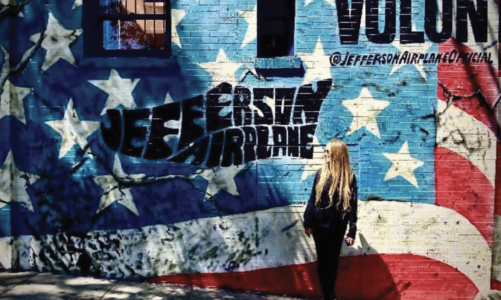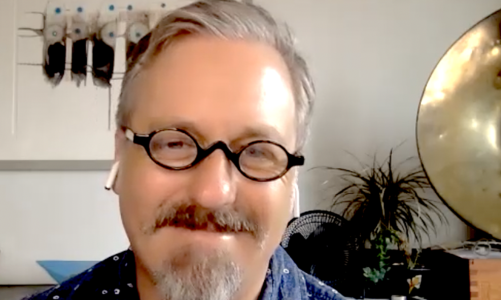By Steve Heilig
A gorgeous clear San Francisco day. Strolling downhill from a meeting up at UCSF on how to keep the “abortion pills” available to any woman who wants and needs them in these troubled backlash times. The medications have been approved for over 20 years — I helped bring them here from Europe 30 years back — but the fringe minority of misguided “right to life” activists want to ban them, of course. And so my brain churns on, fired up by anger over this issue and the discussion we’ve just had, plus the fact that walking frees the mind to go where it might as I stroll down into the Haight, where I’ve happily resided for 40 years now. Hungry, thinking a lunchtime veggie burrito would hit the spot as I stop at a corner red light. There’s a young guy, stapling a “Mush Love” flier on a lamppost, with a phone number saying “Text or call for menu.” I smile and ask, “May I have one?”
“Sure,” he says. “Call us up and we’ll set you right up. Good shrooms!”
“No thanks, I meant your poster, but good to know. Aren’t you worried about getting busted?”
“Naah, it’s legal here now.”
“Well sorta, maybe…. Dealing it like this might not be though. There have been busts right in our neighborhood.”
“Ahh, bummer, man. Listen, maybe you want to buy some right now?”
“No thanks. But I’m actually in this realm professionally and support good research and safe medical use, including right up there at UCSF, but … “
“Ah really? Cool! Do you think they would buy some? We’d work out a quantity deal …”
“Er, no, it has to be very pure, controlled, for real medical research, and … “
“Maybe they’d want some for people afterwards, you know, like a pharmacy thing? For anybody who wants more? We could do that! And hey, do you know any docs who might want some? Or, anybody?”
Etc etc. Nice kid, a bit hyper. Young capitalist, heavily into marketing. And maybe into his own product a bit much too, “high on his own supply” as the old saying goes. Evangelistic, even, at least where there might be money to be made.
“Psychedelic Medicine” is the big buzz (sorry) now. Michael Pollan’s brilliant 2018 book How to Change Your Mind was a bestseller and he did a very good mini-series too. Some of the best universities in the nation now host well-funded psychedelics research centers, with heartening results showing varying degrees of effectiveness of substances such as psilocybin, MDMA, ketamine, LSD and more for problems such as PTSD, depression, even addiction. It’s what I call Psychedelics 3.0, where 1.0 was the long history of often-religious use in cultures around the world, and 2.0 was the flourishing of careful use and research by figures such as Aldous Huxley, Timothy Leary and others in the 1950s and 1960s, plus quieter experimental use therapists and a bit of nefarious use by the CIA and others in the military seeking to “weaponize” such substances.
That all blew up in the 1960s, resulting in a backlash and shutdown of virtually all such research. Still, by the 1980s some ambitious activists began the long expensive slog of bringing legitimate research back into the mainstream. Their progress has been unavoidably slower than many might like, but also truly amazing given the political obstacles.
But the risk of another backlash persists. Leary became a psychedelic evangelist, prompting Richard Nixon to call him “the most dangerous man alive”. Ironically, one of the ideals of those taking big doses of LSD in the 1960s was to dissolve the ego, but for Leary and too many others it seemed to have the opposite effect. Although percentage-wise they were small, there were many psychedelic casualties who never quite came back. Predators such as Charlie Manson, who started his Path to Infamy in the Haight, utilized drugs on his cult followers. The profit-motive fueled unprecedented free-market wheeling and dealing, from kids selling little baggies of pot to massive, and violent, cartel-type operations. And the government drug warriors and media seized on that and shut everything down, while also shutting many users away behind bars, to no good end and often training them to be hardened convicts.
Now the psychedelic evangelists want few or no restrictions on their practices, whether training and credentials, protocols, etc, and they can charge what they want. And many seem to see these substances as an end rather than a means, making it a way of life.
Some adopt the self-aggrandizing term “psychonaut.” Which seems okay to me if nobody is hurt. But when, as moderator of a panel on psychedelic medical research at UCSF a few years ago, I dared quote the revered Ram Dass’ (formerly Richard Alpert PhD, Leary’s partner in pioneering research at Harvard) admonition “once you get the message, hang up the phone,” hisses and boos came from some in the audience. Booing Ram Dass!
Now undeniably many have learned much from such substances, maybe even a few becoming “enlightened.” But add money to evangelism, as with fundamentalist churches, and is it any surprise there are bad outcomes, abuses including sexual, and rampant profiteering? Money may be the most addictive drug of all.
Oops. Derailed by my own rumination, I’ve stood here through at least a couple red/yellow/green light changes. Young Mr. Mush Love has now stapled his posters on all four corners of the intersection. He waves at me, smiling, and I shout a goodbye and “Be careful out there,” quoting an old TV cop show whose name I can’t recall, and walk on, having “flashbacks” to my longtime friend and mentor Dr. Dave Smith, now a reasoned advocate of renewed psychedelic research, as a young newly-minted physician from the same school I’d just left, almost 60 years ago, walking these same streets and seeing new “hippies” using some of same illegal substances he was researching in the laboratory and seeing in his clinic. And then founding the fabled Haight Ashbury Free Clinic, model for other such places nationwide, providing care of all kinds for millions, and Rock Medicine, serving concertgoers who’d had too much or the wrong drug or both, freaking out backstage in the “space tent” while protesting “but they told me it was organic and vegan, man.” At least most were kept out of hospitals and jails, free to “party” again, maybe a little bit wiser. Maybe.
So perhaps some things in this realm are coming full circle, in at least some ways, and some real good will come from all this turmoil. Later, when some of my thoughts get posted on the Haight Street Voice social page, the post is immediately flooded with dealers hoping to sell psychedelics, thus illustrating my concerns. It’s all so complex. But maybe all this will work out fine, for most, at least. Maybe. Hopefully. Nobody really knows yet.




